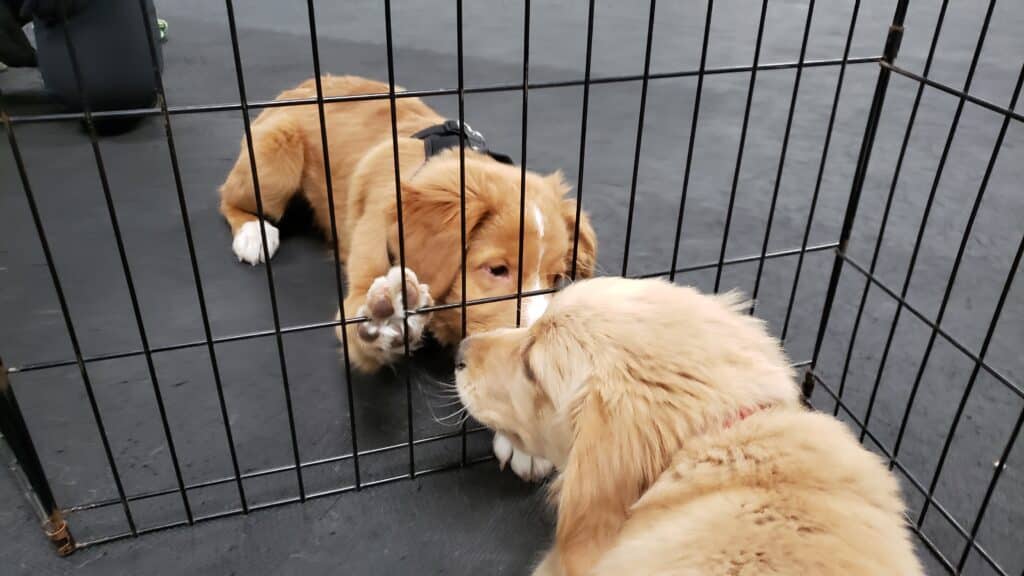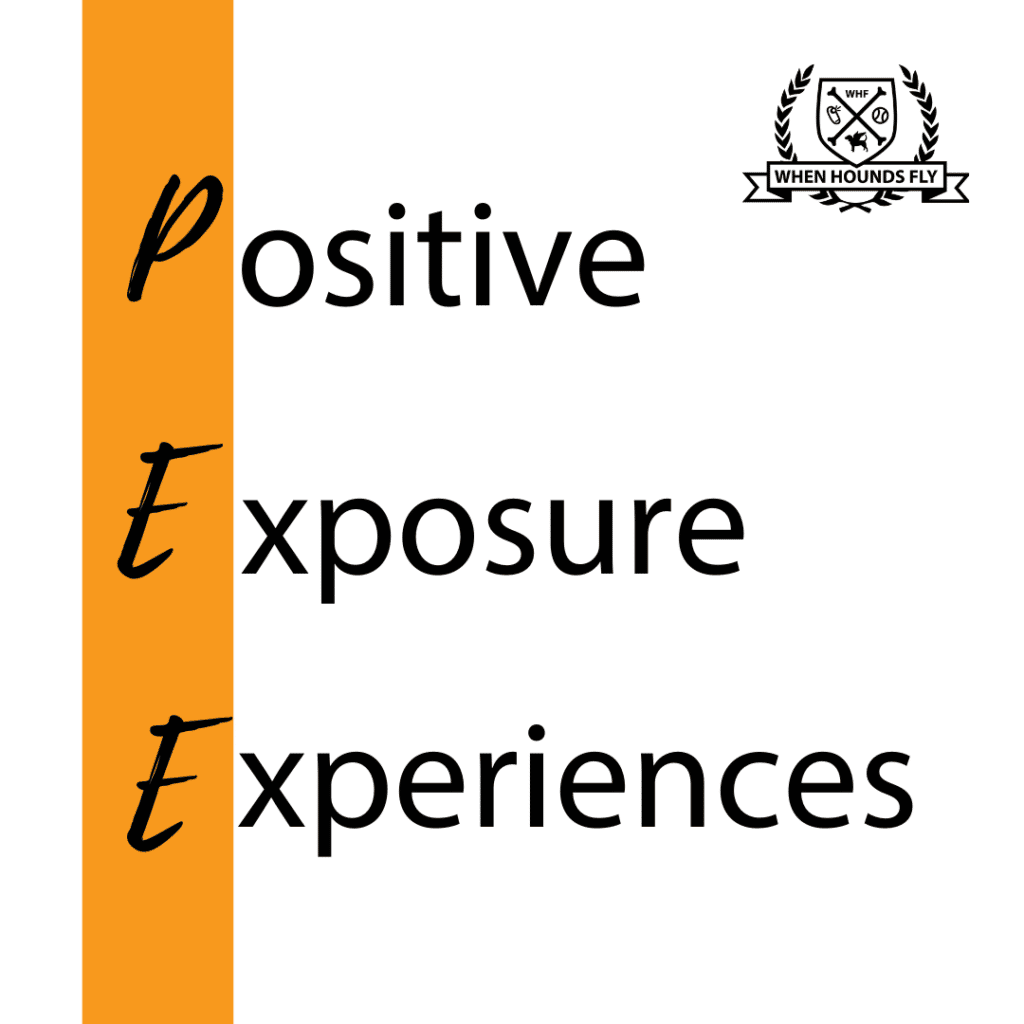Am I doing it right?
Everybody that gets a new puppy has one thing at the top of their mind: socialization. But what IS it? HOW do you do it? WHEN should you start?

What is socialization?
From Oxford Languages:
- the activity of mixing socially with others.
- the process of learning to behave in a way that is acceptable to society.
Many of us tend to focus on that first definition – the activity of mixing socially with others. Speak with any good dog trainer though, and they’ll tell you socialization for our puppies should be about the second one!
Socialization from a trainer’s perspective means exposure to new sights, sounds, smells, surfaces, and situations.
When should you start?
Right away!
The American Veterinary Society of Animal Behavior believes it should be the standard of care for puppies to receive such socialization before they are fully vaccinated.
Often we have students tell us that they can’t come to classes because their puppy has not had all the vaccinations yet. What they don’t realize, is they are missing the most critical socialization period in their puppies life!
To reduce the likelihood of a puppy growing up and developing fear, anxiety, or aggression problems, it is important that prior to complete vaccinations, the puppy must have a rich socialization history.
How do you socialize your puppy the right way?
Our favourite tool to keep your puppy’s socialization on track is to download this puppy socialization checklist from Dr. Sophia Yin.
Start to become an expert at reading your puppies body language. If they are backing away, cowering, refusing to move forward, running behind you, or jumping up on you, move away from the thing that is causing the fear. At no point do we want to force our puppies to “just get over it”. If you cannot recognize the early signs of discomfort, you’re puppy will learn that you don’t understand them, and escalate to growling, snarling, snapping, and eventually lunging and biting.
Never force your dog to “get used to it”. Imagine somebody offered to help you get over your fear of balloons. They drag you into a room filled with balloons, and won’t let you leave until you calm down. Not only would that experience be extremely stressful, it’s more likely to deepen the fear rather than cure it. You’ll do whatever they want you to do just to get out of that room! But will your fear be cured? More often than not, the answer is no.
Reinforce exploration. Anytime your puppy looks at, moves towards, sniffs, or otherwise engages with a new thing (sight, smell, sound, surface, etc.), reinforce that confidence! You can use praise, treats, butt scratches, toys…whatever your puppy likes. The more reinforcement your puppy receives for exploring new things, the more likely they are to explore in the future.

Remember the acronym PEE to help guide you! Positive Exposure Experiences are what we want. That means our puppy should leave every new experience feeling like good things just happened, let’s do that again!
Get started!
Now that you know how important it is to get your puppy experiencing new things in a safe and controlled way, get going. Our instructors are here to help guide you through the critical socialization period in our classes. Check them out!
